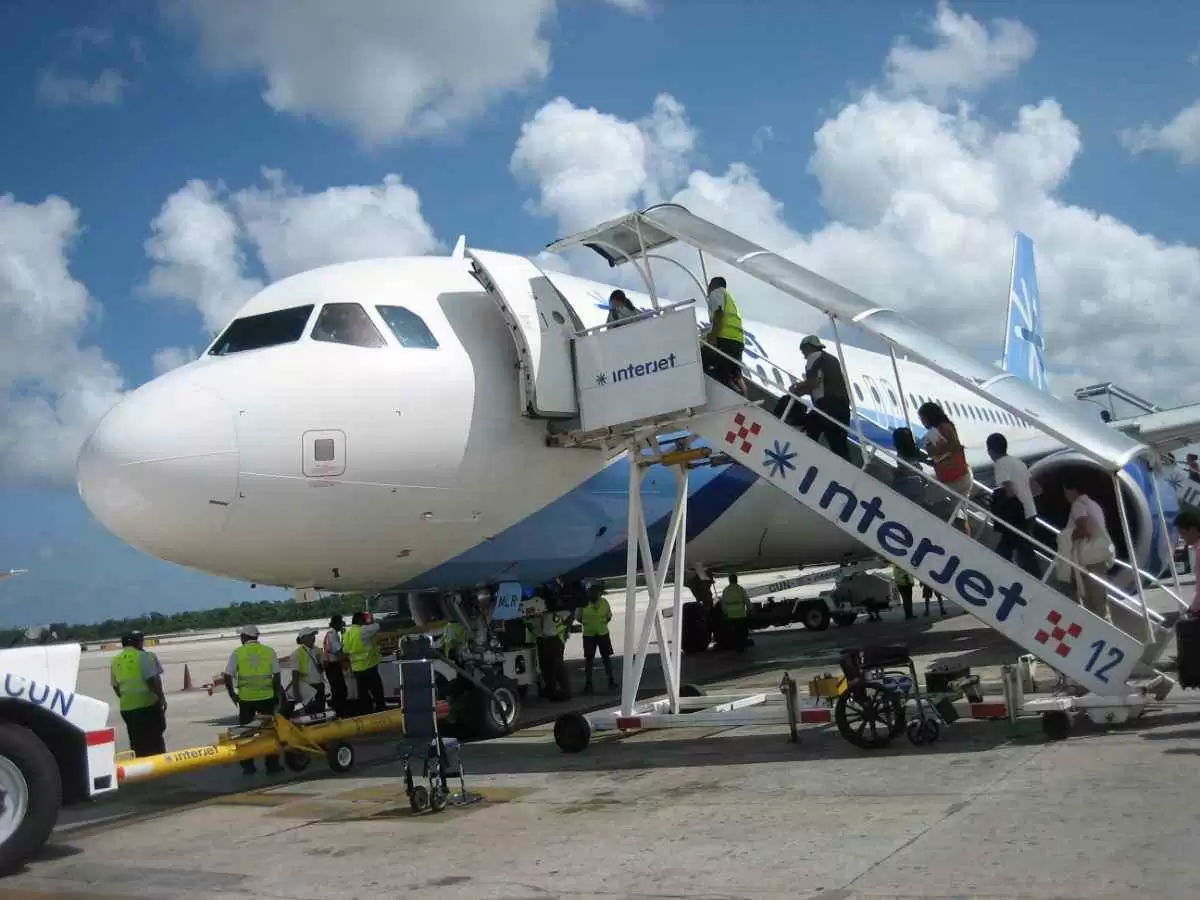
Celiac.com 06/08/2005 – There's no point in enjoying the improved health and vitality you'll experience on a gluten-free diet if you're just sitting at home pining away for excitement because you're afraid to venture too far away. You have to live life to its fullest—you should be livin' la vida loca! There's no reason whatsoever to limit or, worse yet, give up travel because of this diet. Traveling wheat-free/gluten-free might be a little intimidating at first, but really, it just takes a little more planning, and sometimes an extra suitcase or two.
Pre-Travel Checklist
Before you leave, research your destination: Check with a support group in the area you're visiting to see if they have a list of celiac-friendly restaurants or grocery stores. Also search the St. Johns Celiac Listserv archives for frequent posts about gluten-free-friendly restaurants. You might want to go to the Internet and look up your destination city to see if they have one or more health food stores. If they do, call the store(s) and ask what gluten-free products they carry—if you have a favorite product, ask them to order it for you before your trip so they will have it in stock when you arrive.
Celiac.com Sponsor (A12):
Be aware of legal considerations when crossing borders: Some countries have laws about what foods can be imported. Make sure you know what the laws are, and don't try to bring foods with you that might be confiscated. My family and I had an – umm – interesting experience at the Mexican border when we brought gluten-free pancake mix in an unmarked, vacuum-sealed plastic bag.
Know the language (at least key words): Learn at least a few key words of the language spoken in the country you'll be visiting. Make sure you can say wheat, flour, and other key words. Bring restaurant cards written in the language(s) of the country you're visiting (see www.celiactravel.com), or use translation software to create your own. Ask for rooms with a kitchenette, or stay in a condo: Even a small kitchenette with a microwave, refrigerator, and sink will make your life a little easier.
Ship food to yourself: If you're traveling a long distance or are going to be gone for a long period of time, consider shipping some of your favorite products to your ultimate destination so they're waiting for you when you arrive.
Carry a "kitchen in a suitcase": If you're accustomed to making your breads, cookies, and other baked goods from the mixes that you order online or find in specialty stores, bring them with you, as it may be difficult to find them at your ultimate destination. Bring your specialty tools or appliances, too, like your bread slicer, if you plan on cooking while you're away.
Grab your gadgets: Manufacturers offer some ultra-convenient travel gadgets these days, even for the traveling eater. Most sporting goods stores carry a small refrigerator (there are several brands) that plugs into the cigarette lighter of your car, making it easier to bring yogurt and other perishables on long drives. And we all know how toasters can present a problem since "regular" toast seems to spray its crumbs everywhere, contaminating them for gluten-free eaters. A travel toaster available on the Internet: eliminates the worry—just take your own and you're set.
BYOF: Even gluten-free bread travels well if you slice it and pack it in a hard plastic storage container. Hard-to-find cereals, pretzels, and favorite treats—even pre-baked frozen cookies—make great snacks en route or when you arrive. Don't forget to pack food for the trip itself, as well as food for your stay at the destination.
There are grocery stores everywhere you go: When you arrive at your ultimate destination, stop in at the local grocery store and stock up on some of the basics. Dont forget to buy aluminum foil and resealable bags, which work well to store leftovers from restaurants, or any foods that you may have brought with you.
Remember your restaurant rules: Use the tips mentioned in my books or in past issues of Scott-Free for eating out at restaurants, since youll probably be eating out more than you do when you're at home. If you're traveling to certain places in Europe, you might be pleasantly surprised to find that in some countries like Sweden McDonalds offers two types of hamburger buns: gluten-free and "regular."
Getting There
When planning how and what you're going to eat on your trip, you have to first decide where you're going and how you're going to get there. How much and what you bring depends on whether you're taking planes, trains, or automobiles.
Driving: Driving allows you the most flexibility, and is easiest when you're trying to accommodate a restricted diet. If you're driving in the United States, there will most certainly be national fast-food chains all along the way. Even if you don't want to rely on greasy burgers and fries as a staple for your entire drive, you know that you have a backup—just in case. National restaurant chains (even those that are not of the fast-food, greasy-burger variety) have branches in all major cities—find out which restaurants are along your driving route (you can check www.mapquest.com or a similar Website), and check the restaurants Web sites or contact them for their lists of wheat-free/gluten-free products (this is where your three-ring binder with restaurant lists that you leave in the car comes in handy). There are also commercial gluten-free restaurant guides available, such as the one at www.celiac.com.
Most important, BYOF. You will probably bring snack foods to munch on while you drive, so just make sure you're loaded with snacks that are easy to eat in the car, travel well, and of course, meet your dietary restrictions (and don't forget the paper towels or wet wipes!).
Flying, cruising, and riding the rails: There's less flexibility in how and where you can eat when you're at the mercy of a commercial airliner, ship, or train—but you still have a number of options. Many commercial airlines offer a selection of specialty meals, including gluten-free ones. Be careful, though, and read the labels if the food has them, because sometimes our gluten-free meals have come with fluffy, doughy bagels (that obviously aren't gluten-free). If mistakes are made, don't be mad. They tried, and at least they considered having a gluten-free meal as an option. Be glad they made the attempt, and consider writing a polite, gratuitous letter to the food supplier offering information on what's gluten-free and what isn't.
These days, airlines restrict the number of carry-on bags, so you'll have to be more efficient in packing snacks and meals for the flight. Snack items that you might include in a sack lunch usually make good take-along foods for the airplane.
Cruise ships always have executive chefs. They're accustomed to accommodating restricted diets, some of which can have dangerous consequences if mistakes are made, so they take the subject very seriously. By contacting the administrative offices of the cruise line several weeks in advance, you can arrange for the chef to provide you gluten-free meals throughout your cruise.
Trains are tougher, since most of the foods found in café cars are usually along the lines of packaged sandwiches, croissants, pastries, and other oh-so-not-nutritious goodies. I highly recommend bringing food on the train, and not just because of your restricted diet, if you know what I mean.
Danna Korn’s Tips for Disneyland, Disney World, and Other Theme Parks
Disney theme parks aren’t just the happiest places on earth—they’re among the most accommodating for people with restrictive diets. When planning a trip to any theme park, call a couple of weeks in advance and ask to talk to the executive chef. Tell the chef what day you’ll be there, and specifically what your restrictions are (Disney parks are well-versed on the gluten-free diet). Indicate the type of food that you’d like to eat, and if you’ve been there before you may even be able to specify the restaurant of your choice. The chef will ensure that you have a safe, enjoyable meal.
Once You’re There For some reason, people who worry about traveling sometimes forget that other cities also have grocery stores. In fact, just about any city I’ve ever been to has a store of some sort or another. This is the most convenient thing!
When you first arrive at your destination, check out the local grocery stores and see if you can sniff out a health food store or two. They may carry products you’ve never seen before, which is always an added bonus. If you call a few weeks before you arrive, you can even request that they order some of your favorite products and have them in stock when you get there.
If you’ll have kitchen facilities available and plan to do a lot of your own cooking, you’ll find that being away from home isn’t much different from being there, especially if you pack your kitchen in a suitcase and come equipped with some of your favorite foods.
Happy Travels!
The most important thing to remember is that travel is about the experience—the company you’re with, the places you visit and the activities you enjoy— and not necessarily the food. If you can enjoy another country’s foods because they’re gluten-free, that’s terrific. And we know there are plenty of gluten-free foods available in the U.S., no matter where you are. So make those spring and summer travel plans—you’re now well-armed to have a happy, healthy gluten-free trip!





Recommended Comments